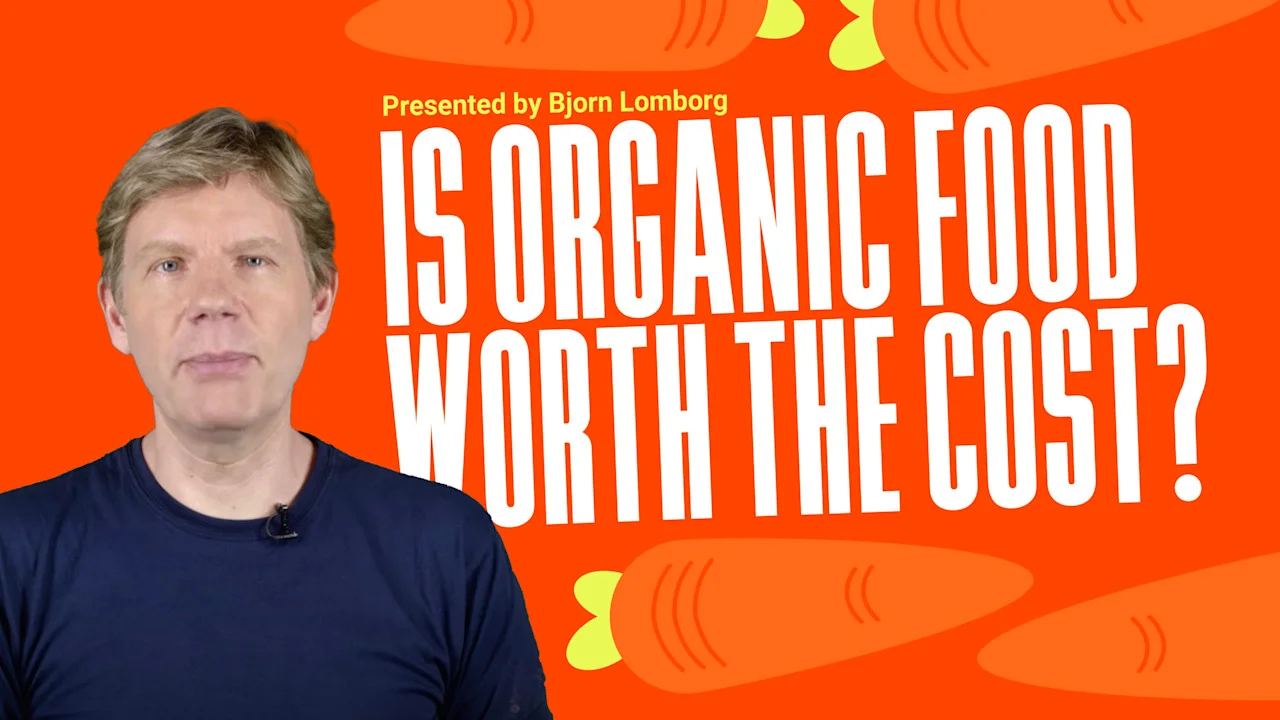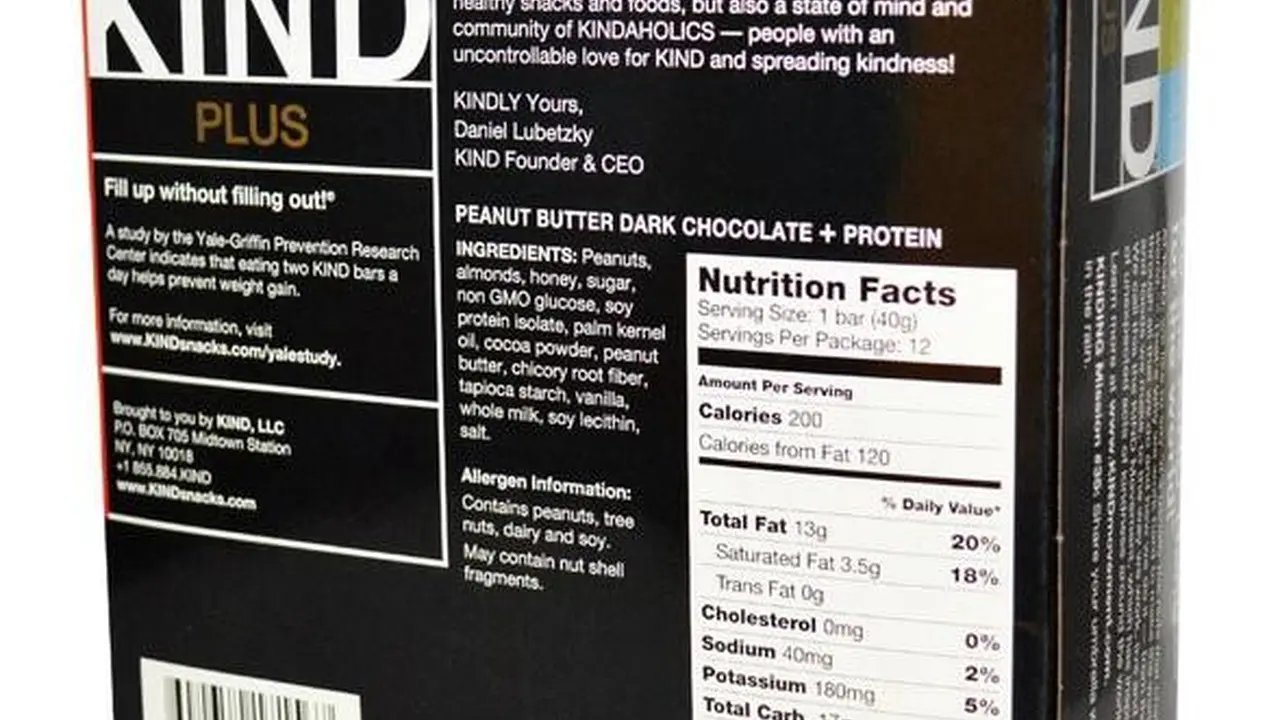Is Organic Food Worth the Cost? A Detailed Comparison
Sample meta description.

Understanding Organic Food What Does Organic Really Mean
So, what's the big deal with organic food anyway? It's not just a fancy label or a way to spend more money at the grocery store (though, let's be real, it can feel that way sometimes!). Organic farming is all about working with nature, not against it. That means no synthetic pesticides, herbicides, or fertilizers. No genetically modified organisms (GMOs). And a whole lot of love and attention paid to the soil and the animals.
Think of it like this: conventional farming is like giving your plants a shot of steroids to make them grow big and fast. Organic farming is like feeding them a healthy diet, making sure they get plenty of sunshine and water, and letting them grow at their own pace. It's a slower, more natural process, but the idea is that it results in healthier, more nutrient-rich food.
The USDA (United States Department of Agriculture) has strict rules for what can be labeled "organic." Farmers have to follow these rules for at least three years before they can get certified. And they have to prove that they're using organic practices every step of the way, from planting the seeds to harvesting the crops.
But here's the thing: "organic" doesn't always mean "perfect." It just means that the food was grown according to a specific set of standards. It doesn't necessarily mean it's healthier, tastier, or better for the environment. It just means it's organic. We'll dive into the pros and cons of organic food in more detail later.
The Price Tag Organic Food Cost Comparison and Affordability
Okay, let's address the elephant in the room: the price. Organic food is almost always more expensive than conventional food. Why? There are a few reasons.
First, organic farming is more labor-intensive. Farmers have to spend more time weeding, controlling pests naturally, and building healthy soil. They can't just spray everything with chemicals and call it a day.
Second, organic yields are often lower than conventional yields. This means that organic farmers produce less food per acre, which drives up the price.
Third, the organic certification process is expensive. Farmers have to pay for inspections and paperwork to prove that they're following the rules.
So, how much more expensive are we talking? It varies depending on the food and the store, but you can generally expect to pay anywhere from 20% to 100% more for organic versions of common foods like fruits, vegetables, and meat. Sometimes, the price difference is negligible, and other times it's downright shocking. For example, organic berries can be significantly more expensive than conventional ones, especially out of season. Organic milk is another consistently pricier item.
Is it worth the extra cost? That's the million-dollar question, and the answer depends on your priorities. If you're on a tight budget, you might have to prioritize which organic foods you buy. We'll explore strategies for budget-conscious organic shopping later.
Health Benefits of Organic Food Exploring Nutritional Value and Pesticide Exposure
This is where things get interesting. Does organic food actually offer any health benefits? The research is mixed, but there are some potential advantages.
One of the main arguments for organic food is that it contains fewer pesticides. Conventional farming relies heavily on synthetic pesticides, which can leave residues on food. While the government sets limits on pesticide residues, some people are concerned about the potential long-term health effects of consuming these chemicals, especially for children.
Organic farming, on the other hand, prohibits the use of most synthetic pesticides. This doesn't mean that organic food is pesticide-free. Organic farmers can use natural pesticides, but these are generally considered to be less harmful than synthetic ones. And it's important to note that even organic pesticides can have environmental impacts if not used carefully.
Some studies have also suggested that organic food may be more nutritious than conventional food. For example, some research has found that organic produce contains higher levels of antioxidants. However, other studies have found no significant difference in nutrient levels. The soil quality, the farming techniques, and the variety of the plant all play a significant role in nutrient content, regardless of whether it's organic or conventional.
Ultimately, the health benefits of organic food are still a subject of debate. More research is needed to determine the long-term effects of organic vs. conventional diets.
Environmental Impact Organic Farming Practices and Sustainability
Beyond personal health, organic farming also has a significant impact on the environment. Organic practices are generally considered to be more sustainable than conventional practices.
Organic farming promotes soil health. By avoiding synthetic fertilizers and pesticides, organic farmers help to maintain the natural balance of the soil. They use techniques like cover cropping, composting, and crop rotation to improve soil fertility and prevent erosion. Healthy soil is better able to absorb water, which can help to prevent flooding and drought.
Organic farming also reduces pollution. Synthetic pesticides and fertilizers can contaminate waterways and harm wildlife. Organic farming minimizes the use of these chemicals, which helps to protect the environment.
Furthermore, organic farming can help to combat climate change. Organic soils store more carbon than conventional soils, which can help to reduce greenhouse gas emissions. Organic farming also uses less energy than conventional farming, as it doesn't rely on synthetic fertilizers and pesticides, which require a lot of energy to produce.
However, it's important to note that organic farming is not a perfect solution. Organic farms often have lower yields than conventional farms, which means that more land is needed to produce the same amount of food. This can lead to deforestation and habitat loss. Additionally, the transportation of organic food can contribute to greenhouse gas emissions.
Making the Choice Deciding if Organic Food is Right for You
So, is organic food worth the cost? It depends on your individual circumstances and priorities. If you're concerned about pesticide exposure, supporting sustainable farming practices, or simply want to try something different, organic food might be a good choice for you. If you're on a tight budget, you might have to prioritize which organic foods you buy or consider other ways to eat healthy without breaking the bank.
Here are some questions to ask yourself when deciding whether to buy organic food:
* What are my priorities? (Health, environment, budget?) * What foods do I eat most often? * How much am I willing to spend? * What are the alternatives? (Local, seasonal, conventional?)Ultimately, the decision is yours. There's no right or wrong answer. Just be informed and make the choice that's best for you.
Organic Food Recommendations and Product Reviews
Alright, let's get down to brass tacks. You're thinking of going organic, but where do you even start? Here are a few specific product recommendations, along with their use cases, comparisons, and approximate prices. Keep in mind that prices can vary widely depending on location and retailer.
Organic Berries: Nature's Sweet Treat
Product: Driscoll's Organic Strawberries (approx. $5-7 per pound)
Use Case: Snacking, smoothies, baking, topping yogurt or cereal.
Comparison: Compared to conventional strawberries, organic berries often have a richer, more intense flavor. They also tend to be smaller and more delicate. Driscoll's is a widely available brand, but you can also find organic berries at local farmers' markets for potentially better flavor and freshness.
Pros: Delicious, versatile, good source of antioxidants.
Cons: Can be expensive, especially out of season.
Organic Spinach: Popeye's Choice
Product: Earthbound Farm Organic Spinach (approx. $3-5 per container)
Use Case: Salads, smoothies, sautéed dishes, soups, omelets.
Comparison: Organic spinach tends to be more tender and less bitter than conventional spinach. Earthbound Farm is a widely available brand, offering both baby spinach and mature spinach leaves. Consider buying a larger container if you use spinach frequently.
Pros: Nutrient-rich, versatile, relatively affordable.
Cons: Can wilt quickly, requires proper storage.
Organic Chicken: A Protein Powerhouse
Product: Applegate Organics Chicken Breast (approx. $8-12 per pound)
Use Case: Grilling, baking, roasting, stir-fries, salads.
Comparison: Organic chicken is raised without antibiotics or hormones. Applegate Organics is a reputable brand known for its high-quality poultry. Compared to conventional chicken, organic chicken often has a more robust flavor and firmer texture.
Pros: Healthier for the chickens, potentially healthier for you, better flavor.
Cons: Significantly more expensive than conventional chicken.
Organic Milk: The Calcium Classic
Product: Organic Valley Organic Milk (approx. $4-6 per half gallon)
Use Case: Drinking, cereal, baking, coffee.
Comparison: Organic milk comes from cows that are raised on organic feed and are not treated with antibiotics or hormones. Organic Valley is a cooperative of organic farmers known for their high-quality dairy products. Compared to conventional milk, organic milk often has a slightly richer flavor.
Pros: Healthier for the cows, potentially healthier for you, better flavor.
Cons: Consistently more expensive than conventional milk.
Organic Coffee: Your Morning Ritual
Product: Death Wish Coffee Organic Whole Bean Coffee (approx. $20 per pound)
Use Case: Brewing coffee, espresso.
Comparison: Organic coffee is grown without synthetic pesticides or fertilizers. Death Wish Coffee is known for its incredibly strong, high-caffeine coffee. While not for the faint of heart, their organic offering provides an intense and flavorful caffeine kick without the chemical baggage.
Pros: Avoids pesticide exposure, supports sustainable farming, potentially better flavor.
Cons: Can be more expensive, strong flavor may not be for everyone.
Tips for Buying Organic on a Budget
Okay, so organic food can be pricey. But don't despair! Here are some tips for saving money while still enjoying the benefits of organic eating:
* Prioritize: Focus on buying organic versions of foods that you eat most often or that are known to have high levels of pesticide residues. The Environmental Working Group (EWG) publishes a "Dirty Dozen" list each year, which highlights the fruits and vegetables with the highest pesticide levels. * Shop around: Compare prices at different stores. Farmers' markets, co-ops, and discount grocery stores often offer better deals on organic produce than traditional supermarkets. * Buy in bulk: If you use a lot of a particular organic food, consider buying it in bulk. This can save you money in the long run. * Cook at home: Eating out is almost always more expensive than cooking at home. By preparing your own meals, you can control the ingredients and save money. * Grow your own: If you have a garden, consider growing your own organic fruits and vegetables. Even a small container garden can provide you with fresh, healthy produce. * Join a CSA: Community Supported Agriculture (CSA) programs allow you to buy a share of a local farm's harvest. This can be a great way to get fresh, organic produce at a reasonable price. * Look for sales and coupons: Keep an eye out for sales and coupons on organic products. Many stores offer weekly specials, and you can often find coupons online or in newspapers. * Don't be afraid of "ugly" produce: Some stores sell "ugly" or imperfect produce at a discount. This produce is just as healthy and delicious as the perfect-looking stuff, but it might have some cosmetic imperfections. * Buy frozen: Frozen organic fruits and vegetables are often more affordable than fresh ones. They're also just as nutritious, and they can be stored for longer.By following these tips, you can enjoy the benefits of organic food without breaking the bank. Remember, every little bit helps! Even if you can't afford to buy everything organic, you can still make a positive impact on your health and the environment by choosing organic options whenever possible.
:max_bytes(150000):strip_icc()/277019-baked-pork-chops-with-cream-of-mushroom-soup-DDMFS-beauty-4x3-BG-7505-5762b731cf30447d9cbbbbbf387beafa.jpg)






